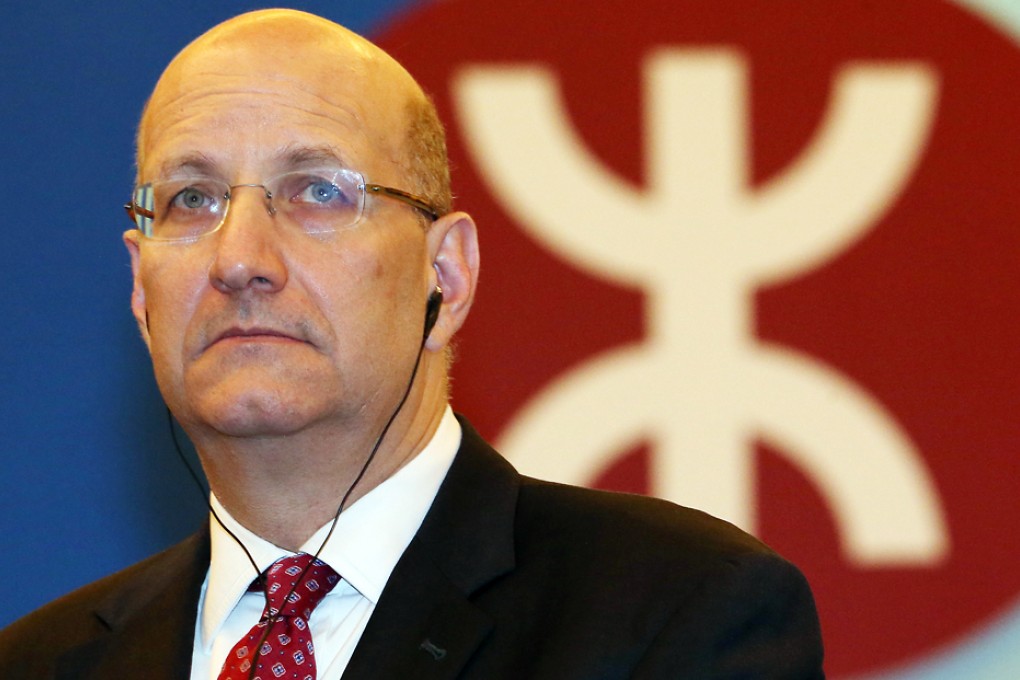MTR chief executive will not renew contract in 2015, says chairman
Exit not related to express railway delay, it says; government to name more directors

MTR chief executive Jay Walder will leave his job after his contract ends next year, the company announced yesterday, as the government said it would appoint more directors to the board to strengthen its role in the firm.

But MTR chairman Raymond Chien Kuo-fung said the decision was made last year and was not related to Walder's handling of the cross-border express project.
Walder cited family reasons for the decision not to renew the contract further after it was continued for two years in August.
"This is a mutual agreement," he said. "It fits our family purposes, and that's why we wanted to do it."
The American chief executive has been at the centre of controversy over the delay in completion of the HK$67 billion project until 2017. It was revealed earlier that the government had wanted to tell lawmakers in November about the possible delay but was stopped from doing so by a phone call from Walder to the transport minister, Professor Anthony Cheung Bing-leung.